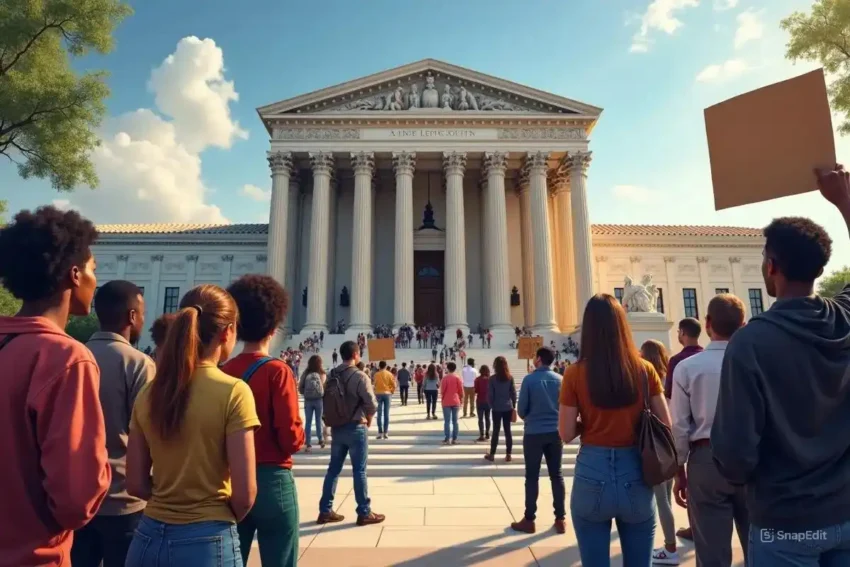When most people think about lawsuits, they picture courtrooms, judges, and verdicts. But civil actions often reach far beyond a single case. They can expose dangerous practices, inspire reform, and hold powerful institutions accountable. A single claim can trigger real change, improving safety laws, strengthening healthcare policies, and reshaping workplace culture. Law firms like Glotzer & Leib have seen how legal action can become a force for progress, not just compensation.
The Power Of Accountability
Every case begins with a story of someone who was hurt, ignored, or mistreated. Civil actions give those people a voice when other systems fall short. While compensation helps families recover, accountability is what drives real change.
When an individual or business is held responsible, it sends a message that negligence and misconduct have consequences. That message spreads quickly, encouraging others to act more carefully. Even before a case reaches trial, the pressure of legal scrutiny can lead companies to improve their policies and training.
Accountability doesn’t just correct one wrong; it prevents future harm. It creates a ripple effect that influences how others behave, making communities safer and more aware.
Changing Safety Standards
Many of the safety rules people take for granted today came from civil lawsuits. Cases involving defective cars, unsafe equipment, or poorly designed consumer products often expose serious risks. Once these flaws are made public, manufacturers are forced to take action through recalls, redesigns, or stricter testing.
Workplace safety is another area that has changed as a result of civil actions. Injured employees have discovered clear instances of neglect that have led to widespread reform. Changes, such as new safety equipment or mandatory training programs, have been implemented to protect employees across entire industries better better.
Public awareness is also a big part of this scenario. When negligence is exposed, public pressure for better protection increases. In due time, the public will leverage those pressures into policy changes that create better standards for everyone.
Reforming Healthcare Practices
Civil cases have played a significant role in improving healthcare systems. When patients suffer because of preventable medical errors, lawsuits often reveal where the system broke down. Hospitals respond by tightening their procedures and improving patient oversight.
Due to legal accountability, some hospitals have implemented new surgical checklists, improved communication protocols, and reinforced staff training. These measures help prevent future errors and restore trust between patients and their healthcare providers.
In many cases, providers themselves act as advocates for change after observing an injury that may have been prevented. Civil actions do not address only a single error or unintended harm; they also perpetuate a commitment to provide safer, better care.
Influencing Corporate Culture
When claims of discrimination, harassment, or unsafe working conditions in the workplace are revealed through legal filings, it often forces a company to analyze its culture. Resolutions in these cases rarely lead to a settlement, but they usually require a deeper discussion of respect, equity, and accountability.
Businesses may offer diversity training, streamline complaint reporting, or update decades-old workplace policies. These types of changes create healthier and safer work environments over time. Employees feel empowered to share concerns, and leaders discover ways to intervene before issues arise.
Big corporations, in particular, set examples that others follow. Once one company makes a significant policy change, competitors tend to follow suit. This creates an industry-wide shift that benefits countless employees beyond the original case.
Inspiring Legislative Reform
Civil lawsuits can also lead to stronger laws. When courts expose recurring issues, like unsafe housing, environmental damage, or unfair labor practices, lawmakers often step in. The evidence and stories that come out in court help shape new policies to prevent similar problems.
For example, improved consumer protections and workplace safety laws often began with civil cases that revealed serious risks. Each case adds to a growing awareness of what needs to change, guiding legislators toward better regulations.
These reforms may take time, but their impact lasts for generations. They ensure that lessons learned in one case protect others from harm in the future.
Beyond Compensation: The Bigger Picture
Civil law is more than just compensation; it is about advancement. Families should be compensated for their loss; however, the larger goal is to prevent that harm from happening again. By seeking justice and serving as a voice for themselves and their family, one individual pushes all of us toward a more just system.
The outcome of one individual’s case can influence how corporations conduct their business, how doctors provide care to their patients, or how we enact legislation. This shows that courage and resilience can lead a whole system from non-responsibility to accountability.
Conclusion
Firms like Glotzer & Leib understand that justice doesn’t stop at the courthouse doors. Their work helps people find closure while driving meaningful reform. Real justice transforms institutions, protects future generations, and builds a safer society for all.

